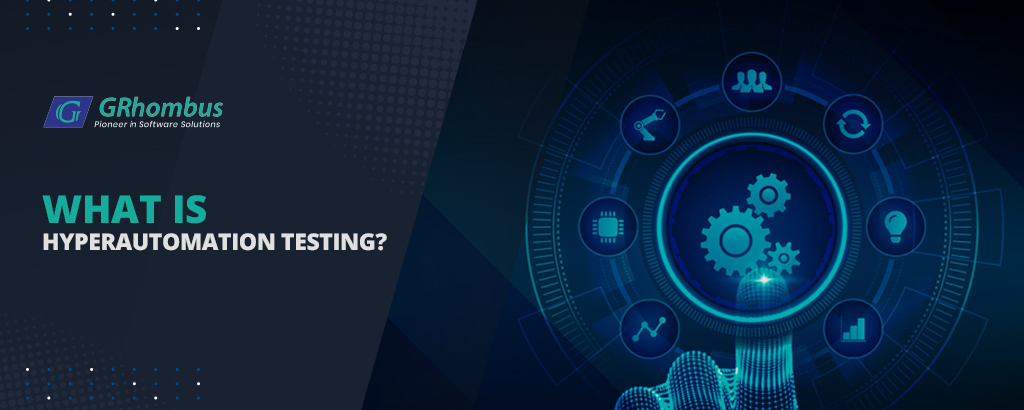It is no doubt that artificial intelligence (AI) and machine learning (ML) have revolutionized different aspects of various industries and business verticals. They have helped create new business models, add efficiency into the system and even understand customer perceptions and interactions better.
One area where AI, ML and Robotic Process Automation (ROPA) can find good applications is in the field of software testing. Oftentimes, one or more such tools can be combined to achieve stellar results. This is where the concept of hyperautomation testing comes in.
In layman terms, hyperautomation testing refers to the use of advanced technologies, such as artificial intelligence (AI), machine learning (ML), and robotic process automation (RPA), to automate and streamline the testing process. The key feature of hyperautomation testing is how it is able to analyze large volumes of data by leveraging various AI and ML algorithms to identify patterns, make intelligent decisions and improve the testing process. It can also be used to validate system behavior, automate the generation of test data, reduce manual effort and perform continuous testing.
As the best software development company in the USA and a leading software development company in UK, GRhombus Technologies has done key work in this area. In our experience, some of the key advantages of hyperautomation testing are:
1. Reduced time to market
Using hyperautomation testing, many manual and repetitive tasks can be automated and this will help in faster time to market of the product. Automated tests can run 24/7 and catch issues early and human resources can focus on other important areas.
2. Increased quality
With automation, the depth of testing and the breadth of testing can be increased. This includes areas like more use cases, browsers, devises etc, which may not be possible in a manual testing setup. This will ensure that quality is built into the testing process.
3. Consistency
Since there is no fatigue involved like the case of manual testing, hyperautomation eliminates human errors and inconsistencies. Since the breadth and depth of testing is more, it also means that errors can be caught early. The feedback loop is faster and more robust.
4. Ability to scale
With an automated test setup, it is easy to scale without any corresponding loss in quality. The same may not be possible in a purely manual setup.
While we discuss the advantages, it is also important to have a balanced perspective of things. Some of the key disadvantages of hyperautomatino testing are listed below.
5. Investment in time, infrastructure and capital for setup
From the perspective of hyperautomation testing, developing automated test scripts and building out the necessary infrastructure requires significant initial investment in tools and knowhow. Hence, it is necessary to weigh the pros and cons before making a final decision to go in for a hyperautomation setup in the organization.
6. Maintenance
As with all tools, even a hyperautomation testing setup needs maintenance. They have to be updated as the test cases, applications and envionments evolve. Further, when defining automated test scripts, they should be free from bugs. Else, they can lead to false positives/negatives in results. Further, a certain amount of foresight is required as automated tests must me capable of meeting future needs and should not be brittle.
7. Skill
Writing automated test scripts requires skill and deep coding expertise. Further, the modules must be clearly defined and designed and when error messages are thrown, it should be easy to identify the root cause.
Why GRhombus Technologies?
GRhombus Technologies is a leader in offering cyber security solutions and software testing solutions. We are a trusted information security partner for leading companies in Europe and USA.
Apart from cybersecurity and software testing, we are also a leading software development company in UK. Established in 2014, GRhombus Technologies has delivery centres in India at Hyderabad, Chennai and Bengaluru, and partner offices located in the USA and the Netherlands.
For additional details, please contact us.
